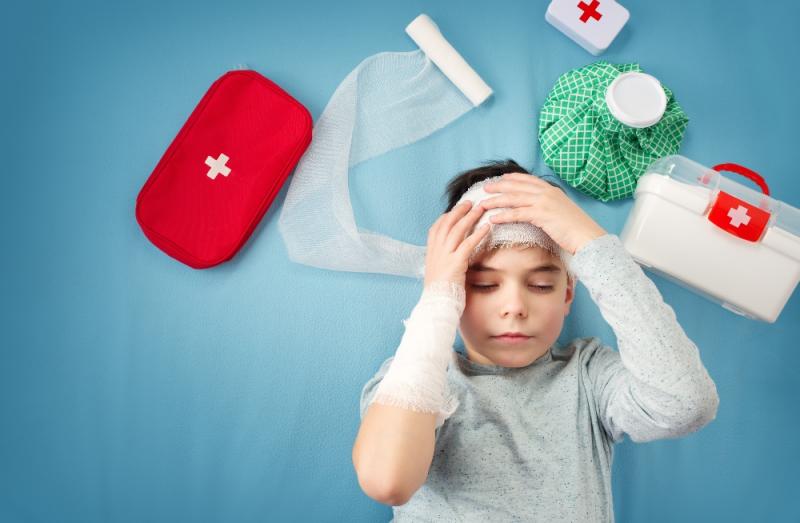What Is the Relationship Between Concussions and Mental Health?
When your child plays sports, whether they’re younger or perhaps in high school, there is always that persistent fear of an injury and in particular, a head injury.
The best thing to do as a sports parent is to make sure your child, regardless of age or sport, has the safety and protective gear they need, and that their gear fits and is in good condition.
Of course, sports players can certainly sustain injuries even in protective gear, and there’s currently no such thing as a concussion-free football helmet. Even so, having that protection there is far better than not.
If your child plays sports and you notice any mental health red flags or symptoms, you may wonder if they could be linked to past concussions. As a parent of an athlete, having an understanding of the full range of potential concussion immediate and long-term effects is important and empowering.
The following are critical things to know about the links between concussions and mental health.
Can a Concussion Affect Mental Health?
If your child who plays sports gets a head injury, it’s possible that it could create new mental health symptoms or worsen an existing condition.
Some of the many wide-ranging symptoms of a concussion can include confusion, anxiety, depression, and concentration problems. Concussion symptoms can also include memory impairment, personality changes, and irritability.
If your child has a pre-existing history of mental health problems, then a concussion is more likely to affect them in these ways.
A study funded by the NIH found that an estimated one in five people might experience mental health symptoms up to six months after a mild traumatic brain injury.
In that study, researchers also identified factors that can increase the likelihood of developing PTSD or major depressive disorder following mTBI.
Risk factors identified by researchers included having a history of mental illness, identifying as African-American, and lower education levels.
What researchers did not find was a link between the risk of mental health symptoms and factors specifically linked to the injury like how long consciousness was lost.
Ready-to-Play Guidelines
To prevent some of the more severe complications of concussions and mild brain injuries, doctors say that it’s important to treat people very cautiously, and this is especially true in children who may have worse effects than adults.
Children’s brains have less insulation around their nerve cells than adult brains, and children also have weaker necks than adults.
That’s why it’s so important to receive a full medical evaluation and then to ensure your child follows specific return-to-play guidelines.
For older players, their coaches may perform what’s called neurocognitive testing at the start of the season to get a baseline measurement.
There are some states such as Ohio that even have laws dictating the protocol to determine when a child can return to sports. These typically use a baseline exam because concussion symptoms can be similar to those of ADHD, depression or sleep disorders that are fairly common in children.
By doing the baseline exam, coaches and parents can have a better understanding of what symptoms are the result of the head injury and which aren’t.
If your child returns to playing a sport too soon after sustaining a concussion, it could create a risk for more severe symptoms and if they were to get another head injury, perhaps severe brain swelling.
Your child should sit out for a minimum of seven to 10 days after a concussion, but sometimes several weeks or more.
Watch Symptoms Carefully
If your child sustains a head injury playing sports, they may tell you they feel fine. The doctor may do tests and scans and say everything looks okay because CTs and MRIs don’t show structural changes in a concussion.
That’s where watching your child’s behavior carefully becomes so important, particularly if you notice changes in behavior or signs of mental health problems that maybe weren’t there before.
It’s difficult to see these symptoms in children sometimes, often because of the overlap in symptoms of things like ADHD.
The best thing you can do is watch carefully and also be honest with yourself and encourage your child to be honest with you about their symptoms.
If you notice mental health-related symptoms following a sports injury, talk to your child’s doctor. They may be able to refer you to a mental health specialist who works with children.
Also realize that many mental health symptoms of a concussion aren’t necessarily permanent and may subside on their own, but proper rest and treatment are important for that to happen.

